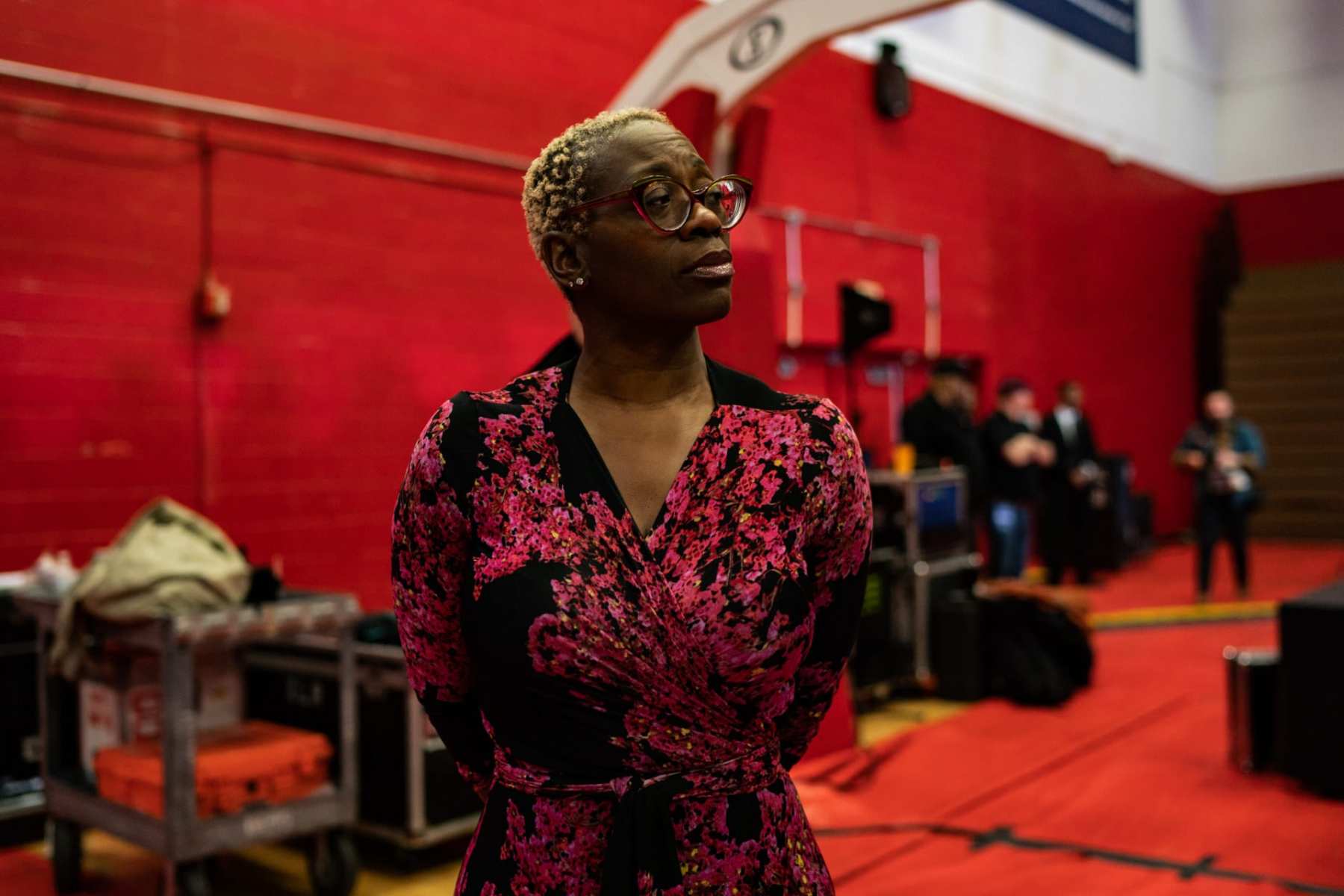Nina Turner, a former Ohio state senator, secured the backing of Rep. Alexandria Ocasio-Cortez on Monday in her bid to win the House of Representatives seat vacated by Marcia Fudge’s move into the Biden administration.
Turner, a national co-chair of Sen. Bernie Sanders’ 2020 presidential campaign, announced in December that she would seek the Cleveland-area seat after then-President elect Joe Biden announced Fudge as his pick to lead the Department of Housing and Urban Development.
Ocasio-Cortez called Turner a “bold, unapologetic progressive who has spent her entire career advocating for the working people of Northeast Ohio.”
“I need her alongside me in Congress in the fight for racial, economic, social, and environmental justice,” Ocasio-Cortez said in a statement, citing their shared support for Medicare for All, a $15 minimum hourly wage and a Green New Deal.
After getting in the race, Turner quickly secured support from Sanders of Vermont as well as Rep. Ro Khanna of California, a fellow co-chair from the Sanders campaign, then from Rep. Cori Bush of Missouri, the first Black Lives Matter movement leader elected to Congress. Endorsements followed from Reps. Ilhan Omar of Minnesota and Rashida Tlaib of Michigan — fellow members, with Ocasio-Cortez, of the group of progressive leaders in the House known as “The Squad.”
Ocasio-Cortez’s endorsement of Turner on Monday adds additional progressive energy to a race that is being seen as a contest between the Democratic Party’s establishment and its activist wing, given Ohio’s 11th Congressional District is heavily gerrymandered and strongly favors Democrats.
Turner said in an interview on Monday morning that she and Ocasio-Cortez have “been on this journey for awhile” and that they “stood in solidarity on the issues that will center the working poor and the barely middle class.”
“I look forward to working with her side by side,” Turner said.
Ohio Republican Gov. Mike DeWine announced last week that the primary election for the House race would be August 3 and the special election would take place on November 2, leaving the seat open for nearly a year. Though candidates have until early May to throw their hat in the ring, at least six other Democrats have already expressed interest in joining the race.
The main competition for Turner, who leads in fundraising, is seen as Shontel Brown, a Cuyahoga County councilor and chair of the party there. She has been endorsed by Rep. Joyce Beatty of Ohio, who chairs the Congressional Black Caucus, as well as Richard Cordray, former director of the Consumer Financial Protection Bureau and state attorney general.
The winner of the Democratic primary is all but certain to win in November, given that Fudge won the district, which contains majority-Black areas of Cleveland and Akron, with more than 80 percent of the vote in both 2018 and 2020.
Turner said that she sees a country that is in a “21st Century version of the Gilded Age” where wealth inequality is “stifling and suffocating” working people and “women are impacted even more.”
COVID-19 has further exacerbated inequalities in opportunity, she said, noting that the number of Black business owners dropped by 41 percent just several months into the pandemic.
In Ohio’s 11th Congressional District, which is 54 percent Black, more than a third of children live under the poverty line and nearly a quarter of households participate in the SNAP food assistance program, compared with about 12 percent of Ohio households and 11 percent of households nationally.
Studies show that 68 percent of Black households are headed by a woman, Turner said, and she takes the approach that when “we lift women, we really do lift whole communities.”
Turner said that if elected to Congress she would prioritize passing a $15 per hour minimum wage, a Medicare for All health care system and the cancellation of student debt.
While Turner acknowledges that many of her positions are more progressive than those taken by the Biden administration — which has, for example, advocated for strengthening the Affordable Care Act instead of replacing it with a single-payer system — “it’s not our job to settle, it’s our job to push,” she said.
“You’ve got to have people like us saying, ‘This is where we’re going, Medicare for All, and we’re going to get there.’ I think Medicare for All is an idea whose time has come and we just have to continue to fight like hell to make it a reality,” she added.






